School Performance Report
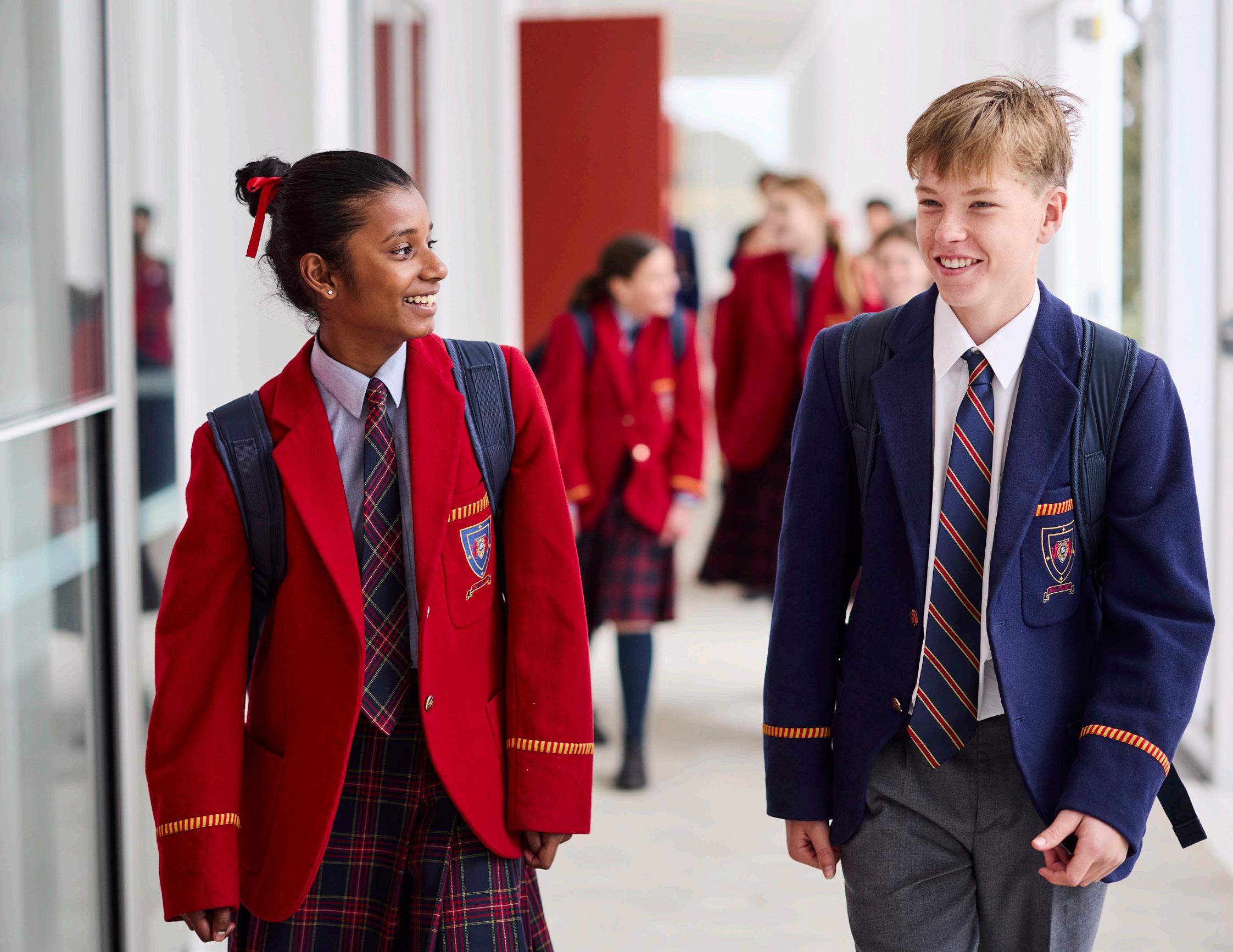


Under the Australian Education Act, all schools are required to report School Performance Information annually to their communities. The following information relates to Saint Ignatius’ College, Adelaide, for 2024.
Saint Ignatius’ College is a Catholic, independent, coeducational school. The Junior School, for Early Years and Reception to Year 6 students, is located at Norwood. The Senior School, comprising Years 7 to 12, is located at Athelstone, approximately 15 minutes away from both the CBD and the Junior School.
In 2024, there were a total of 1,398 students − 869 at the Senior School and 529 at the Junior School. At the Senior School, 53% were males and 47% females. These percentages were 56% boys and 44% girls at the Junior School. In 2024, there were four enrolments of students of Indigenous background, and all students were enrolled as full-time students.
The College is one of five Australian Jesuit colleges, which form part of the network of over 1,000 international Jesuit educational communities throughout the world that began with the visionary St Ignatius Loyola some 483 years ago. There are also a number of ‘Companion Schools’ in Australia and New Zealand, which have a Memorandum of Understanding with the Jesuits to espouse the ethos of Jesuit education in their own schools while remaining independent in governance. These schools, along with the five Jesuit colleges, form JACSA – the Jesuit and Companion Schools Australasia. Collaboration between these schools occurs at all levels, from regular meetings of principals and rectors, as well as pastoral care and curriculum leaders, through to inter-school sporting carnivals. A Jesuit education is based on Christian humanism and emphasises the development of ‘the whole person’ – spirit, mind, heart, body, will. It embraces the intellectual and the affective, the spiritual and the physical dimensions of the human person, fostering the imagination and the ability to evaluate critically.
In traditional Jesuit terminology, our cura personalis approach means caring for and supporting students as unique and gifted young people. Our ideal graduates display characteristics of being open to growth, intellectually competent, faith-filled, loving, and committed to doing justice.
Since education is a lifelong process, it is our aim to instill in our students a desire to continue learning and to delight in what is learnt, in a way that will remain with them beyond their College days. The formation of our students is such that we hope that our world will be a better place for their presence in it. Our aim is to instill in our graduates the virtues of being:
• loving and generous
• just and courageous
• curious and wise
• reflective and discerning
• grateful and joyful
• faith-filled and hopeful.
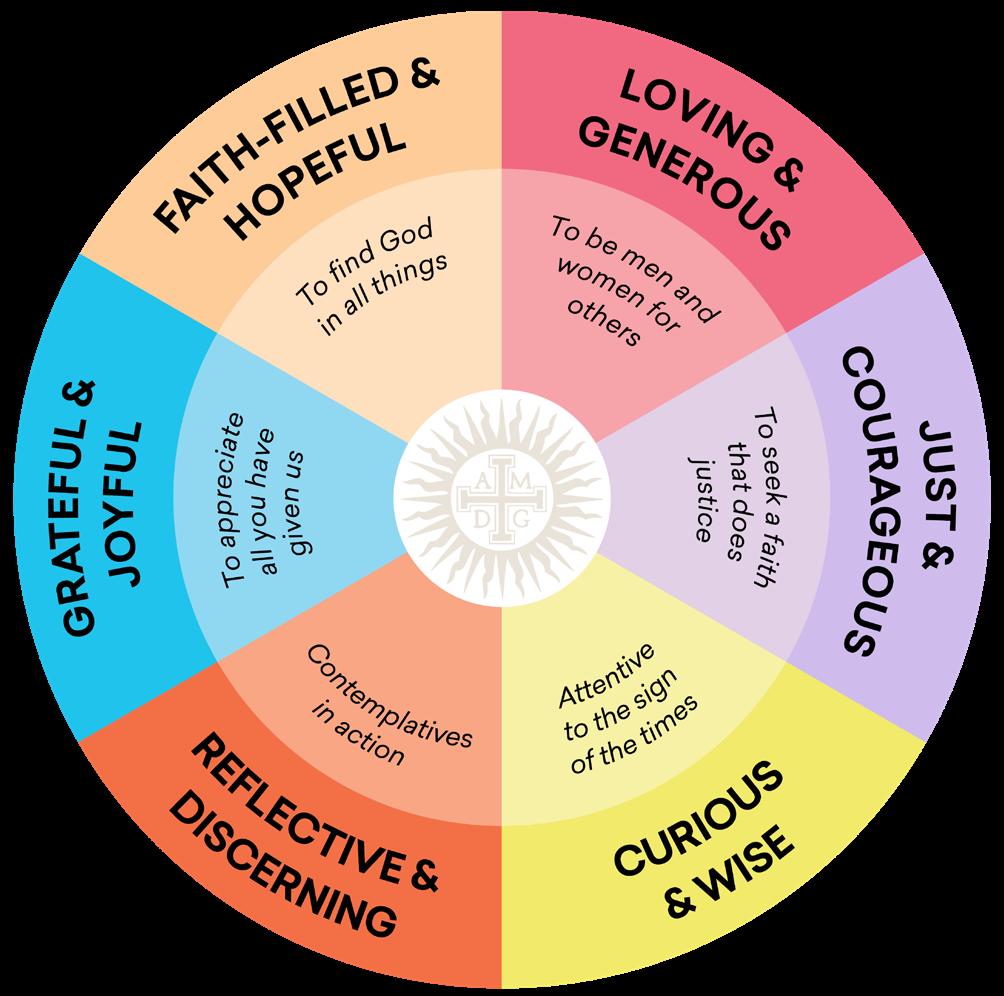
In 2024, at the Senior School, the average student attendance was 91.5 %, and at the Junior School, student attendance was 93%.
Overall attendance in each year level was as follows.
The attendance roll is taken at the start of the day. Parents/caregivers are expected to telephone/email the College before 9.30am on the day of the student’s absence. If parent/caregiver contact has not been made and a student is listed as absent, reception staff contact the family to determine the student’s whereabouts.
Approved leave during the school term may be granted by the Heads of Senior School or Junior School following a written request from the parents/caregivers of students.
Where a student has extended unapproved nonattendance, an interview is arranged with College staff and the family to determine the best course of action.
In the case of a significant number of late arrivals, contact is made by formal letter to parents/caregivers, and if no apparent improvement to punctuality is seen, an interview is arranged to discuss the best course of action.
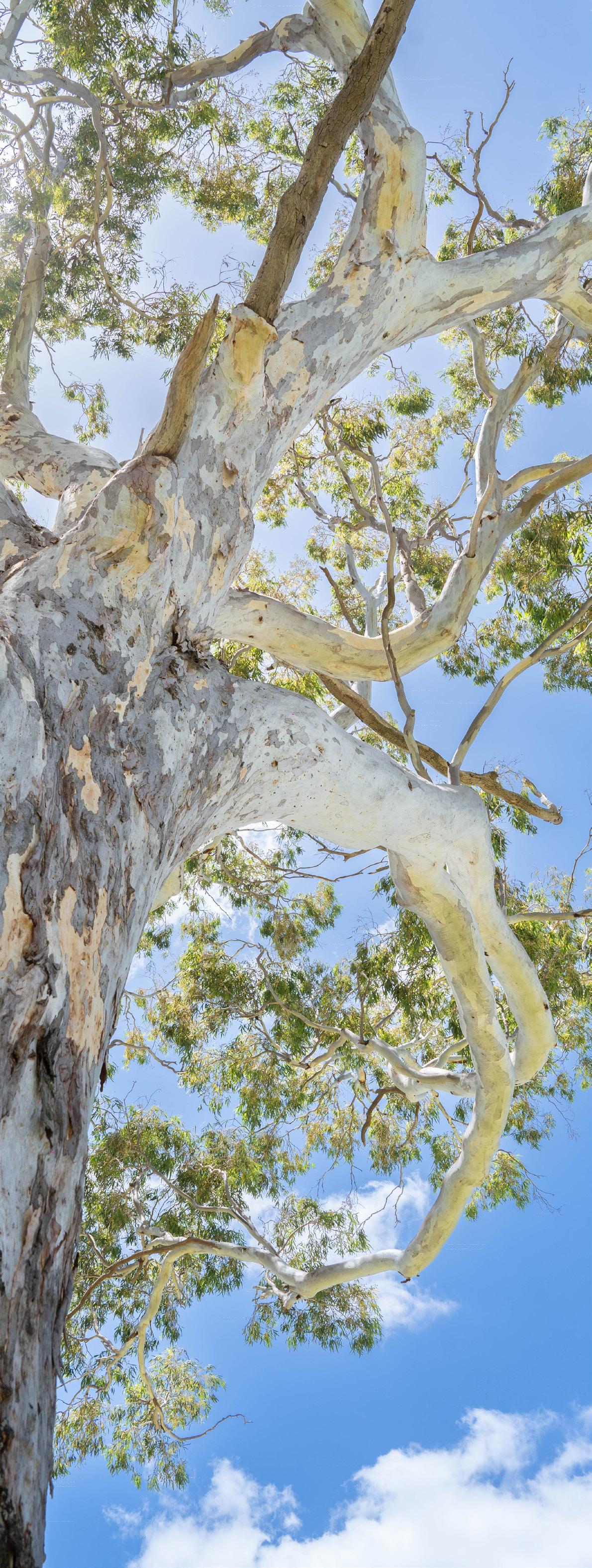
Our 2024 SACE Stage 2 results have been reported via the College Welcome Circular, distributed to families at the start of the year, as well as on the College website and via an insert in the College’s prospectus available from the College Registrar.
Some key aspects of the results achieved are listed below:
• All our Year 12 students gained their South Australian Certificate of Education (SACE).
• Our students gained 125 A+ grades, including 47 Merits in 14 subjects involving 23 teachers.
• Our students achieved 59% of grades in the A band.
• Our student achieved 95% of grades in the A and B bands.
• One student achieved our highest ATAR score (99.8).
• Thirteen students studied a university subject in each semester during the year. These students achieved exceptional grades culminating in 17 High Distinctions, 7 Distinctions, 1 Credit, and 1 Pass.
• Eleven students (8.1% of the cohort) achieved an ATAR of 99 or above, placing them in the top 1% of the state.

• Forty-two students (33.1% of the cohort) achieved an ATAR of 95 or above, placing them in the top 5% of the state.
• Sixty-one students (45.2% of the cohort) achieved an ATAR of 90 or above, placing them in the top 10% of the state.
• One student was awarded the prestigious Elevate: Boosting Diversity in STEM scholarship for their undergraduate studies in 2025. This esteemed scholarship is designed to support talented individuals from underrepresented backgrounds in the STEM fields.
• A Visual Arts art student had their work selected to be displayed in the 2025 SACE Art Show.
• Seven students were selected to represent at state and national levels in co-curricular activities.
The majority of the Class of 2024 followed a university pathway with 94% of the students receiving their first or second preference to a tertiary institution. Students were accepted into a range of courses (further details below). Two students gained entry into Medicine. In addition, two students are continuing apprenticeships they began while completing their SACE, one in Electrical and the other in Childcare. Two students opted to take a break from study and complete service work with the Jesuit volunteer organisation, Cardoner Network.

Of the 2024 cohort, 124 students received a tertiary offer. Two students were offered a position to study Medicine, one at the University of Adelaide, the other at the University of New South Wales. In 2024, Law proved to be the most popular course, with 18 students choosing this pathway. Law was very closely followed by Engineering, with 17 students choosing a form of
Engineering – Mechanical being the most popular. Various forms of Business, Finance and Commerce degrees were very popular with 14 students choosing one of these in either a double or single degree.
Health Sciences and Allied Health continued a strong trend, with six students accepting offers to Speech Therapy, seven to Health and Medical Science, and four to Nursing, Occupational Therapy, Exercise Physiology and Physiotherapy proved to be popular choices. A new trend for 2024 was six students choosing Bachelor of Architecture / Masters of Architecture. Six students were offered a place in Education, ranging across Early Childhood, Primary, and Secondary, as well as Disability and Developmental Education.
Of the 13 students who did not apply to SATAC, one is having a gap year to sit the UCAT, four have commenced apprenticeships (in Concreting, Electrical, Refrigeration and Hair dressing), four are having gap years to think further about careers while working, one moved interstate to continue her studies in Childcare while at home, and another is doing tertiary study with the University of Southern Queensland (Bachelor of HR in WHS) 100% online.
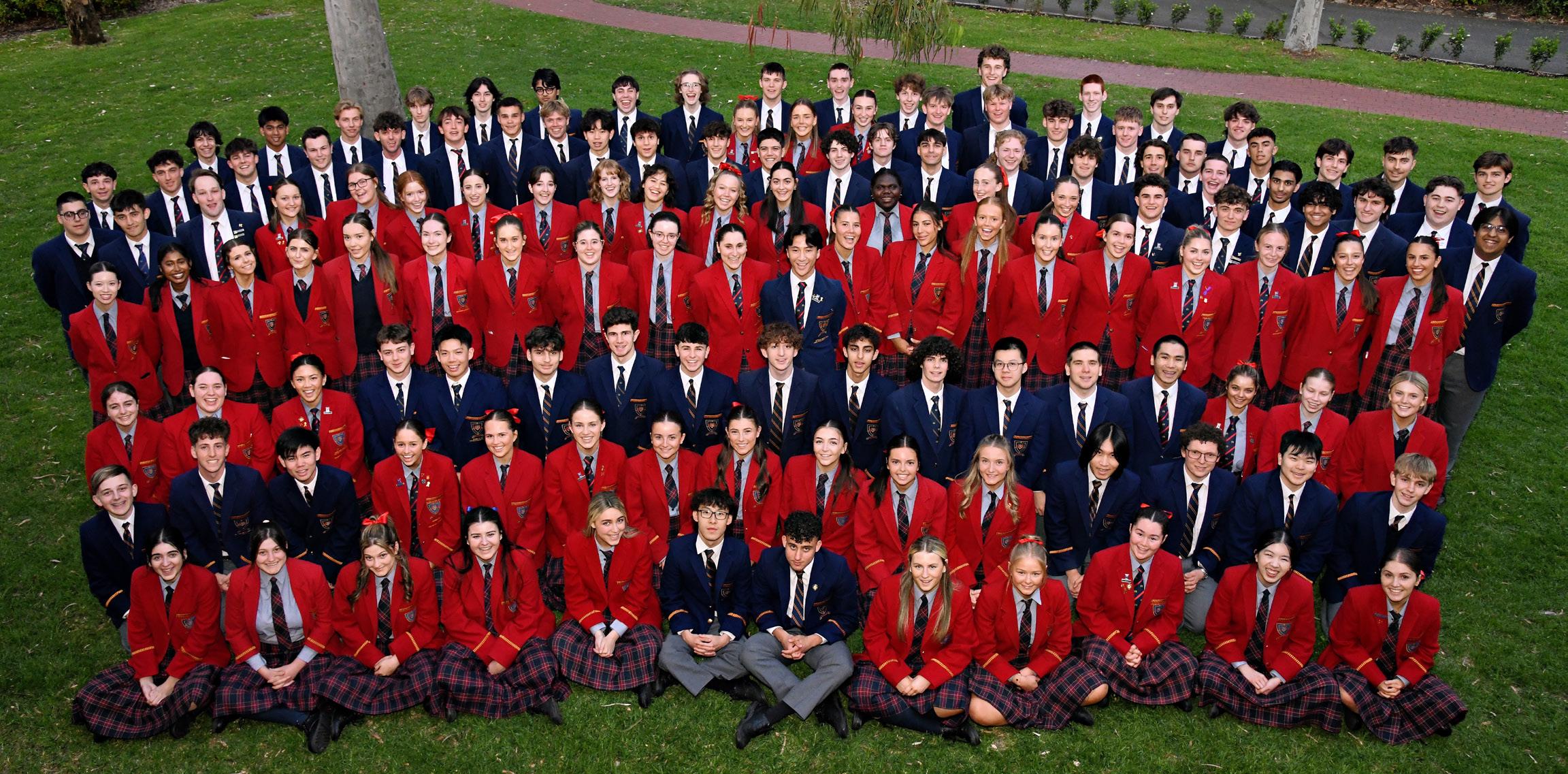
In 2024, VET continued to grow, both in number of students accessing VET and the variety of courses undertaken. While some chose a Certificate III to provide Stage 2 credits, and a ‘safety net’ subject to alleviate pressure and an ATAR boost, many more are also participating in courses which also reflect their career ideation or to provide valuable employability skills. Our school-based Certificate III in Screen and Media remained steady in numbers, with 86 Year 11 students in total being graded in 2024. Two Year 11 students completed the Certificate III Hospitality through their employers and one completed a Certificate III in Dance. The external Certificate III in Business also remained popular, with 12 students across Years 10 and 11 undertaking this. However, a shift saw more Year 10s undertake this course, indicating a desire to complete more VET while in Year 10. As only Fee for Service courses can be completed at Year 10 (due to a Department of Innovation and Skills policy), students can only study courses such as this while in Year 10.
In 2024, the College expanded our school-based VET offerings in Year 11, with the introduction of a Certificate II in Cookery and a Certificate III in Hospitality. This was studied onsite in the Dennett Centre (Gymnasium) kitchen utilising trainers from the Adelaide Institute of Hospitality. This course had 14 students complete the Certificate II and 13 the full Certificate III.
In addition, we had three students complete a Certificate II in Pathways to Construction at Grand Junction Trade Training Centre. One student embarked on a Certificate III in Information Technology through Technical and Further Education (TAFE SA), and another in a Certificate II in Automotive Servicing also at TAFE SA. One interesting VET course was completed by a student in Year 11 in Public Rescue through the Surf Life Saving SA.
Two Year 12 students embarked on School Based Apprenticeships, one studying a Certificate III in Electrotechnology at TAFE SA, and the other, a Certificate III in Early Childhood Education and Care at MADEC
In addition, we continued to encourage Year 10 students to complete units of competency through ‘tasters’, ‘white card’ days and ‘Stackable VET’. In terms of tasters, students attended mostly construction courses. A Year 11 student completed ‘Stackable VET’ units of competency in Fashion at TAFE SA, and another in Animal Care also at TAFE SA. Stackable VET is designed to be an entry level ‘taster’ of the full TAFE course, but not a full qualification. In addition, the entire cohort of Year 10 students completed several units of competency as a part of their First Aid Training, which is a great way to try the ‘hands-on’ nature of VET-style learning. We also had several staff members complete VET in 2024. In November, four staff completed the required units of competency to enable them to be qualified VET Trainers and Assessors. This was through a program jointly funded by the College and through collaboration with Catholic Education South Australia (CESA) and the Registered Training Organisation, ASC Training & Development. In 2026, we are hoping to be able to further expand our in-house offerings with proposals for a Certificate II in Community Services, Certificate III in Sports Coaching, and a Certificate III in Business. By training staff, these courses can be taught by staff with an auspicing arrangement with a registered training organisation.
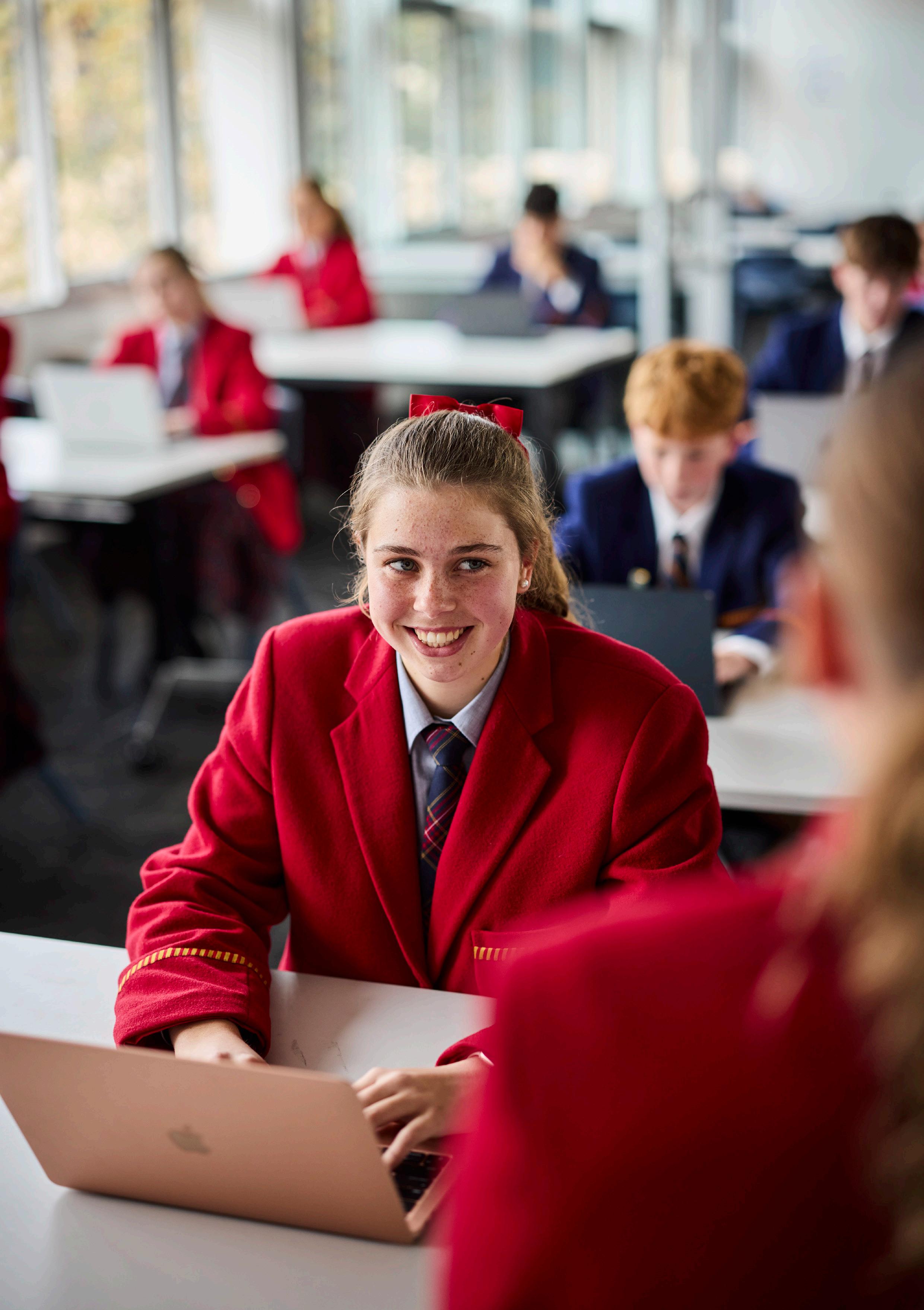
Our students continue to uphold a high standard of literacy and numeracy across all year levels, consistent with previous results. These results provide students, families, and teachers with an opportunity to gain a detailed understanding of a student’s knowledge, understanding, and skills in Writing, Reading, Conventions of Language (Spelling, Grammar, and Punctuation), and Numeracy at a given point in time. Some value can be found in comparing our results to those of other students across Australia; a measure which shows that our students continue to excel in
these areas, often performing above (>10 points) or well above (>20 points) their peers. Unfortunately, the time series interruption in 2022 means that it is not possible to compare these results to historical results for this cohort. This information, along with students’ achievement data captured in class by teachers and results from other standardised testing (ACER PAT testing), will further support staff in providing more personalised, developmentally appropriate learning experiences that encourage students to strive for excellence within the classroom.
A COMPARISON OF 2024 SAINT IGNATIUS’ COLLEGE STUDENTS’ NAPLAN SCALED SCORES WITH NATIONAL AVERAGES ACROSS ALL TEST DOMAINS.

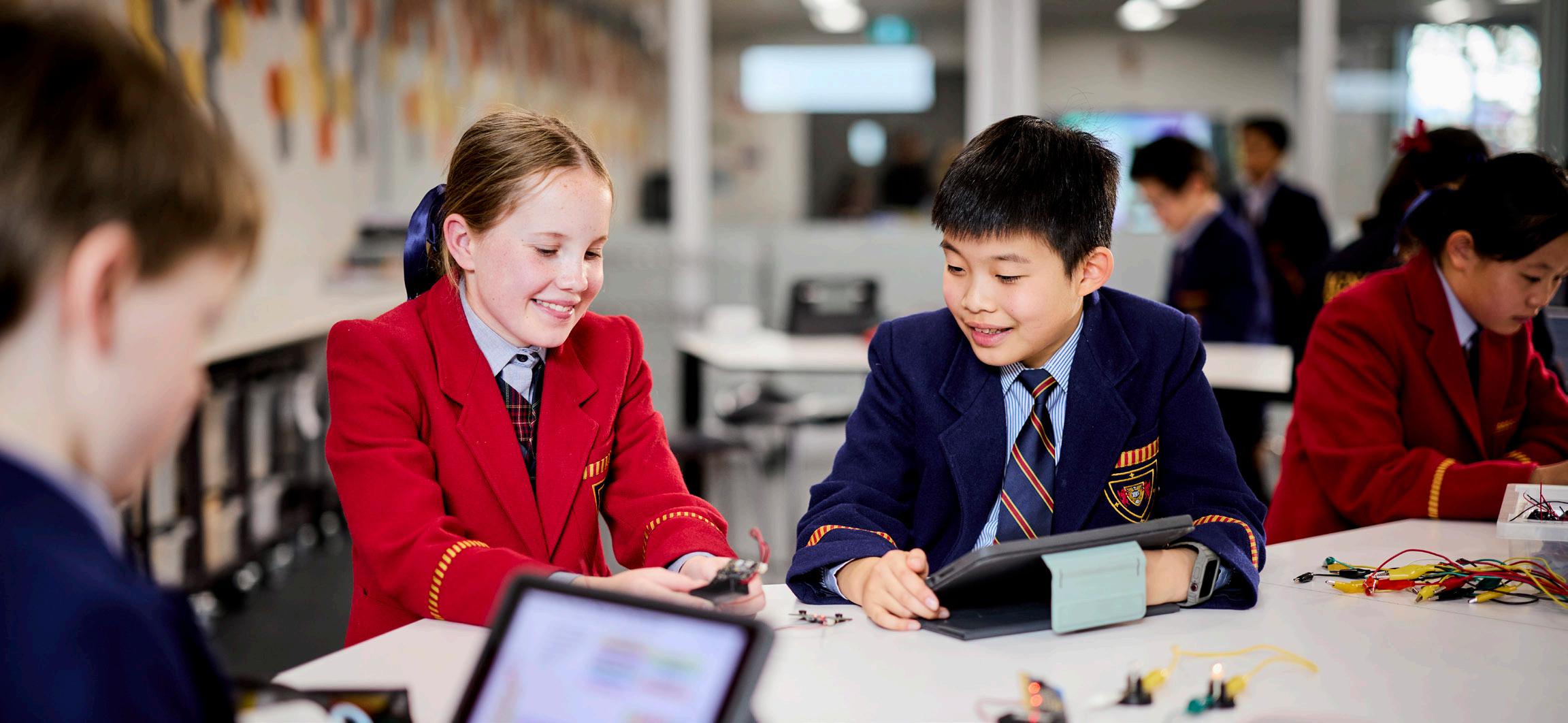
In 2024, at the Senior School,
• 77 teachers with a minimum of a Degree and/or Diploma,
• 13 with Double Degrees,
• 16 with Honours,
• 27 with Masters,
• and two with Doctorates.
At the Ignatius Early Years and Junior School,
• 45 had a minimum of a Degree and/or Diploma,
• 11 with Double Degrees,
• and five with a Masters.
All teaching staff had approved teaching status.
Saint Ignatius’ College employs 218 permanent staff members − 144 at the Senior School and 74 at the Junior School.
At the Senior School, 41% are males and 59% are females, with 15% males and 85% females at the Junior School.
At the Senior School, 34% of staff are employed on a part-time basis, with 51% at the Junior School being part-time.
Our records indicate that currently there is one staff member of Indigenous background.


Saint Ignatius’ College is committed to listening to the views and expectations of key stakeholders. In 2024, staff, students, and families were again invited to participate in surveys to gauge satisfaction levels. Questions were asked about a range of features and issues, such as:
• promotion of the Catholic faith,
• service and outreach programs,
• opportunities for leadership,
• social justice initiatives,
• learning and teaching,
• student engagement in school activities,
• co-curricular programs,
• reporting and feedback,
• providing a safe learning environment,
• facilities and grounds, and
• communication.
Approximately 300 surveys were received, and responses were collated. Overwhelmingly, the feedback was very positive with approximately 90% of responses being either “Agree” or “Strongly Agree” that the College was supporting students in their overall development of head, heart, and hands.
11,482,585
3,083,281
2,802,746

23,988,208
The most significant process used to undergo selfassessment was the new College Strategic Plan 2024−2028, Inspiring Minds, Igniting Hearts, which was shared with the community early in 2024.
The strategic pathways of the plan include:
• Mission
• Learning
• Wellbeing, and
• Stewardship
The College Leadership Team, who maintain oversight of any final decision-making, either directly or via delegation of key personnel, continue to use the Strategic Plan to report to the College Board.
The vision for Saint Ignatius’ College – ‘Finding God in All Things’ – is strongly influenced by the ethos of all Jesuit educational institutions. The College aims to provide high-quality education of an academic nature to a broad range of students. The profile of our graduates at graduation is that they are open to growth, intellectually competent, loving, faith-filled, and committed to justice. At the centre of all strategic decisions are the students in our care.
The College places high value on its Catholic identity and Jesuit heritage. We are extremely fortunate to continue to have a strong Jesuit presence in the College, with Jesuits actively engaged full-time on staff, as well as having regular visits by other Jesuits.
Alternative ways of providing a service to the marginalised were investigated and included preparation of meals to deliver to facilities such as the Moore Street Centre, supporting the homeless in Adelaide, and increased donations to providers such as Caritas Australia and St Vincent de Paul. In 2024, each House at the Senior School had a particular charity it was responsible for in terms of fundraising, giving staff and students a greater focus and understanding of the needs of each of these charities.
At the Senior School, each year level participates in a Day of Reflection at least once during the year. The opportunities for students in Years 11 and 12 to participate in four-day residential retreats continued in 2024, and there were four retreats offered.
Year 11 were invited to participate in immersions, or Journeys of the Heart, overseas in Vietnam and Cambodia, and Timor- Leste. Year 10 students also had the opportunity to travel on immersive experiences. As in 2023, Ikara (Flinders Ranges) was again offered, but new in 2024 was the opportunity to travel to NSW’s Lake Mungo. In each case students were able to experience an eightday immersion working with First Nations peoples to discover more about the history, geography, and ecology of the lands of these Indigenous groups.
(Catholic Identity, High Expectations for All, Orderly and Safe Learning Environments)
A significant focus in the articulation of students’ wellbeing is the pastoral care structure based on a House system at the Senior School. This system allows for 30 minutes each day for Mentor Teachers to meet with their Mentor Groups, which are limited in size to 18 students. This time and group size allows students to be known and affirmed by a significant adult who is able to monitor the wellbeing and growth of students in their care.
The use of external expert providers in areas such as health and wellbeing (both physical and mental) supplement programs run by teachers and counsellors at all three campuses.
At the Junior School, more emphasis was placed on celebrating Harmony Week through liturgy, activities throughout the week, an assembly, and buddy lessons.
The Peer Mediation program was further developed with Year 5 and 6 students participating in an all-day training session to become peer mediators. This involved students working in pairs at recess and lunch where they support their peers in resolving low-level issues in the yard. Another exciting innovation at the Junior School was the introduction of Louie, our wellbeing dog. Louie has had a wonderfully positive impact supporting our students, in particular with emotional regulation.
(Focused Vision and Goals, Strong Leadership, High Expectations for All, High-Quality Teaching and Learning)
The College offers a wide-ranging curriculum. The Jesuit tradition of a Christian Humanism curriculum forms the basis of subject offerings. The College is mindful of the need to offer an engaging and relevant curriculum that will enable students to realise their potential and develop their own gifts and talents. During Stage 2, over 35 subjects are offered, including five languages, Creative Arts, Sciences, Physical Education, Technology, English, Mathematics, Commerce, Histories, and Religious Education. VET options continue to be popular, both as stand-alone options and embedded within subjects.
All teaching staff continued to be encouraged and supported to attend professional development activities in their curriculum areas or general teaching practices. Many teachers of senior classes engaged in assessment activities either as setters, markers, and/or moderators with the SACE Board.
In 2024, modifications were made to the Integrated Learning subject offered at Year 11 that focused on Hospitality. The course was updated and the College engaged with an external RTO so that students were able to be enrolled in a combination of a Certificate II in Cookery and Certificate III in Hospitality.
The College recorded 1,044 co-curricular activity selections, reflecting a strong culture of student engagement and a commitment to holistic education beyond the classroom. Students participated in a wide range of programs including music, drama, debating, public speaking, chess, and social justice initiatives. Highlights included a national public speaking title, a grand final victory for the Intermediate A Grade debating team, and the successful hosting of the 19th annual JACSA Debating Carnival. The College’s music program also flourished, with 12 ensembles performing throughout the year, participation in Generations in Jazz, and the staging of the biennial Festival of Arts performance, A World of Music.
A significant development in 2024 was the introduction of the High Performance Athlete Program, designed to support student athletes through a tiered model of physical literacy, tailored training, psychological support,
and academic tracking. In parallel, students achieved notable sporting success across a range of competitions, including winning the SACSSGSA Athletics Overall Shield for the first time since 2015, the SASS Boys Knock Out Netball Grand Final, and the SASS Ekiden Relay, where the Open Boys team broke the course record. A new partnership with Bloom Leadership further enhanced the College’s focus on leadership development and highperformance culture.
In response to feedback from the community, initial planning commenced in 2024 for the construction of a new gymnasium and multi-purpose learning space at the Senior School. The ‘Magis Centre’ will provide new basketball, volleyball, and badminton courts, and new change rooms, as well as a weights room, a rock climbing wall, and a number of classrooms. This new space will enhance teaching and learning opportunities for students at the Senior School, as well as an auditorium large enough for the whole school to gather to celebrate whole school activities along with smaller function rooms. It is expected that ground works should start in mid-2025.
(Catholic Identity, Strong Leadership, Orderly and Safe Learning Environments, Effective Use of Data)
The governance structure has a board made up of community members who contribute talents, experience, and enthusiasm. Current members bring particular experience in education, finance, law, business, engineering, and ICT. The board-approved Strategic Plan is a working document that is used to give direction on how the College grows and develops.
Work commenced on the development of a new naturebased playground at the Junior School, as well as consistent signage at all campuses. Planning also began for consistent ‘first impressions’ entrance at each campus.
In 2024, the new art, design, and technology hub, the Andrea Pozzo Centre, at the Senior School was opened. Part of the planning of the new building included green spaces around the building, sympathetic to the natural flora of the local environment. The design of the new building also reduces the amount of artificial lighting and air-conditioning needed.
